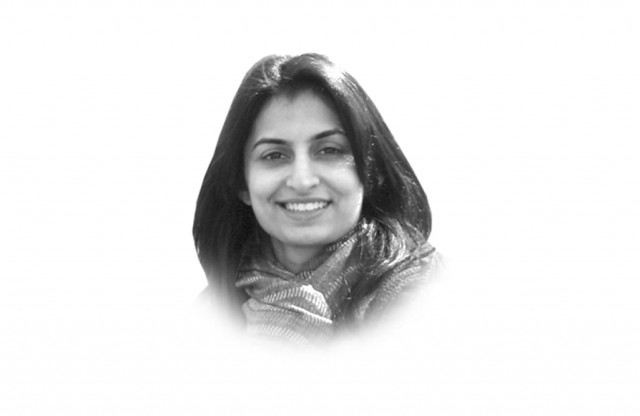The poets we forget
Clearly, the fact that Daman wrote in Punjabi instead of Urdu is a key reason why his poetry is not that cherished.

The poets we forget
Ustad Daman’s real name was Chiragh Din and he was born on September 4, 1911 in Lahore. His father was a tailor and his mother a washerwoman. Unable to become a clerk like he desired, Daman became a tailor and famously sang his own verses while stitching clothes. He first became a public poet through his mystical and anti-colonial recitations at the meetings of the Indian National Congress and soon became known as the foremost progressive Punjabi poet of his time. Partition had a brutal effect on his life as, apart from losing some of his Hindu and Sikh friends, he also lost his wife in Lahore in 1947. His house was subsequently burnt down as he was seen as a traitor Congressman. He then adopted a more insular lifestyle, but his critical poetry flourished and he continued to participate in circles such as the Progressive Writers’ Movement and the Punjabi Adabi Sangat. In the tradition of Punjabi poetry that is direct and irreverent, searing yet playful, Daman took aim at the hypocrisies of both civilian and military leaders in Pakistan and even had to suffer imprisonment as a result. For his resolutely anti-establishment stance, Faiz declared him the Habib Jalib of Punjabi poetry.
One of Daman’s most popular poems talks about how Pakistan is defined by religion and military. A verse from the poem goes: “Pakistan diyaan mujaan hee maujaan/ Chaarey passay faujaan hee faujaan/ (What fun for our lovely land, Wherever we go, armed forces stand — Translation by Waqas Khwaja, from Modern Poetry of Pakistan)
Another poem on Partition brought the audience to tears when Daman recited it at an India-Pakistan Punjabi mushaira in Delhi in the 1950s: “We may not speak, but deep in our hearts we know/ That you have lost, as we too have lost in this divide./ With this false freedom, towards destruction/ You ride, and so too do we ride./ There was some hope, there is life to be found/ But you died, and so we too died.”
Clearly, the fact that Daman wrote in Punjabi instead of Urdu is a key reason why his poetry is not that cherished — institutional structures in Pakistan have rarely promoted regional languages and literature. But there are other reasons as well. Faiz published his writings in significant volumes, while Daman recited oral verses which were collected and published by his avid listeners. Faiz was often gentle in his critique, Daman direct and relentless. Faiz often held state positions and lived like an international intellectual, Daman more like a dervish.
But it’s precisely our regional heritage that Faiz drew upon as his inspiration. And he emphasised how critical it was that elements of our regional cultures be documented, studied, understood and pursued. As he says: “It appears natural, therefore, that before a citizen of Pakistan comes to love or appreciate a national culture which is still in the process of evolution and which he knows only in the abstract, he must love, respect and appreciate his own regional culture which already exists, in whatever developed or undeveloped form, and which he knows and understands…. The only alternative left to us will be to borrow a national culture wholesale from some alien source — a process which is already piece-meal in progress.” (p 91- 92, Culture and Identity)
The process of synthesis that Faiz talks about has received a commendable push through music initiatives such as “Coke Studio” and “UthRecords”. Regional poetry and melody made a significant mark on the national landscape this year, with outstanding songs such as “Redi Gul” (Pashtu), “Maandh Wai” (Sindhi), and “Nar Bait” (Balochi). As a tribute to Daman, I hope that next year one of his poems is put to music and that more of his work receives the attention that it deserves. More generally, we need to continuously engage with the ‘regional question’ in the cultural domain, valuing in particular the extraordinary voices of seemingly ordinary poets.
Published in The Express Tribune, December 31st, 2011.















COMMENTS
Comments are moderated and generally will be posted if they are on-topic and not abusive.
For more information, please see our Comments FAQ